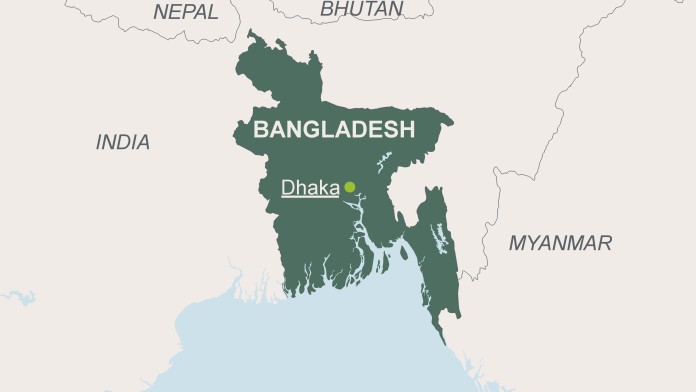
Counting over 160 million inhabitants, Bangladesh is evolving dynamically; the economy has been growing for more than a decade, population growth has fallen, and important development goals such as alleviating poverty and reducing child mortality have been achieved. However, the coronavirus crisis initially hit the important textile industry hard. In addition, the remittances of host workers living abroad play an important role.
Founded in 1971, Bangladesh is the youngest state in South Asia. Fifty years on from Bangladesh becoming a nation, it is on its way to being a middle-income country. Nevertheless, the developmental challenges are significant. Bangladesh is one of the countries hardest hit by climate change, with floods and soil degradation on the rise. Flooding and tropical cyclones are part of everyday life.
Despite great progress, there is still a lack of a sufficient, permanent power supply, particularly in rural areas, where the vast majority of the population lives. This is another reason why more and more people are moving to the country’s rapidly growing cities. Around one million Rohingya refugees from neighbouring Myanmar are still living in Bangladesh. Most of them are in refugee camps, where they continue to rely on support.
KfW Development Bank supports Bangladesh in achieving its development policy objectives. There is close cooperation in the following areas:
Developing and expanding use of renewable energy sources involves improving energy efficiency by promoting solar roof systems that generate electricity and are connected to the transmission and distribution grid. To improve the energy supply in rural areas, KfW also promotes domestic biogas plants as well as larger systems like solar pumps for agricultural irrigation or solar grids on river islands that supply electricity to local residents.
An increasing number of cities receiving support as they prepare for climate change and unleash economic and social opportunities for inhabitants. As a result, the measures financed include main roads that are safely designed to handle floods and storms. At the same time, roads to poor neighbourhoods are being paved, the drinking water supply is being improved and investments are being made in sewer systems. KfW is also promoting the Climate Bridge Fund to support small-scale NGO projects focusing on adaptation to climate change.
Working together with the International Organisation for Migration (IOM), KfW is supporting the construction and expansion of sanitation facilities, hygiene programmes and the repair of rainwater drainage systems in the refugee camps. Furthermore, in cooperation with UNICEF, the inhabitants of Rohingya camps are being assisted with basic and vocational education, and the surrounding host communities are receiving support in the form of basic infrastructure.
Much has been achieved in Bangladesh, particularly in the energy sector, which is so important for the development goals. More than 90% of people now have access to electricity. Further investments in the energy sector are essential to remedy the persistent energy shortage in rural areas and to make it possible to supply the electricity needed to achieve the country’s ambitious economic growth targets. Plus, this energy needs to be generated in increasingly sustainable ways.
Director KfW Office: Michael Sumser-Hellstern
+880 9666 777 333
Fax: +880 2 9 88 64 16
Share page
To share the content of this page with your network, click on one of the icons below.
Note on data protection: When you share content, your personal data is transferred to the selected network.
Data protection
Alternatively, you can also copy the short link: kfw-entwicklungsbank.de/s/enzBWslz
Copy link Link copied